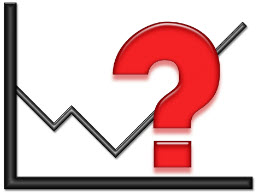What You Need to Know About Fertilizer Prices in 2023
Like many other things, where we saw a dramatic increase in price over the past few years, fertilizer prices skyrocketed in 2022. While they have come down in early 2023, they continue to be higher than normal.
Increases have affected all types of fertilizers – regular fertilizers, water-soluble fertilizers for flowers, vegetables and cannabis, micronutrient fertilizers and many others. It has particularly affected potash, phosphate and potassium nitrogen fertilizers. The question everyone wants an answer to is, will fertilizer prices go back down to normal in 2023? While we’re already seeing some softening in prices early in 2023, if you’re expecting prices to return to pre-pandemic prices, the news doesn’t look as promising.
“With natural gas prices still high and major market disruptions due to the Russia-Ukraine war, we don’t expect fertilizer prices to normalize in time for farmers’ 2023 crop planning,” said FBN Chief Economist Kevin McNew on Agrinews.
Why were fertilizer prices so high in 2022?
Fertilizer prices are market-driven. They are typically determined by supply and demand. There are a lot of things that happened globally that affected supply and demand. There was and continues to be a war between Russia and Ukraine. The other major event was China restricting exports. This has led to supply chain costs being historically high. And we mean significantly higher than pre-covid times.
Prior to the pandemic, the cost of a container of fertilizer from China was $3,000. By May of 2022, it was closer to $30,000 per container. Now it’s back down to normal. But in Europe, the cost of a container was $2,500-3,000, then went as high as $20,000 during the pandemic, and now it is approximately $7,000 so it is not back down to normal. This has a big impact on costs because fertilizer is a heavy commodity. You can only ship 24,000kg per container, so the cost per kilo was driven almost as high as the cost of the raw material itself – and, in some cases, even higher!
Finally, because of the spike in price, businesses started to stockpile supplies. Then the demand became unprecedented because clients were stocking up and usage was high. It’s a similar effect that happened to other products during the pandemic – toilet paper, formula, children’s Tylenol, and many others.
Will fertilizer prices go down in 2023?

So, will prices normalize in 2023? There will be a softening in the market – we are seeing it already – but they not return to pre-pandemic levels.
The Ag market affects the horticultural market. Manufacturers look at the net back on each. So, if Ag goes up, horticultural goes up within 2-6 months. The same is true if it goes down.
Currently, the commodity markets are down about 30% from their peak, however, they are still not at pre-Covid levels.
Also, food pricing is very high at the moment. So, farmers will not pull back on inputs as their profit supports fertilizer inputs.
The good news is we don’t anticipate any type of fertilizer shortage this year unless there is another significant global event.
Summary: key issues affecting fertilizer prices in 2023 and in the future
U.S. and Canadian fertilizers come from all over the world. There will continue to be a variety of factors that will affect its pricing in the short and long term future. So, it’s still uncertain when prices will go down and how long they will stay at their current levels is unclear. Here are the key things to keep an eye on this year:
- China: The country continues its restrictive fertilizer exports policy in 2023
- Russia: They have increased export tax and export quotas.
- Natural gas prices: EU natural gas prices continue high
- Freight costs: They are going down but are relatively high historically (sea and land) from Europe
- Supply chain: Congestion in transportation ports is easing
- War: Continued uncertainty from the Russian/Ukraine conflict
- Commodity market: Strong Ag fundamentals
Want to cut your fertilizer costs and increase grower profitability?
Learn how high-quality fertilizers can help you cut fertilizer costs, labour costs and increase your growing productivity here.
For more fertilizer productivity tips, check out these blog posts:
- Top Fertilizer Tips & Insights from 2022
- 4 things to look when picking the best fertilizer for fruit trees
- How to properly clean your irrigation system (& avoid costly clogging)
Plant-Prod manufactures water-soluble fertilizers for fruit trees, plants and flowers including cannabis. The choice of growers from California to Maine for over 70 years, Plant-Prod fertilizers are made from the finest raw ingredients in the world, tested constantly for purity and turbo-milled to ensure 100% solubility in order to help you improve yields while cutting fertilizer costs. Click here to find a Plant-Prod cannabis fertilizer supplier near you.
